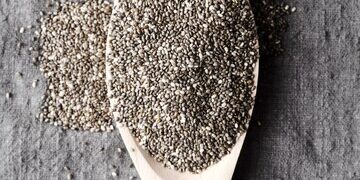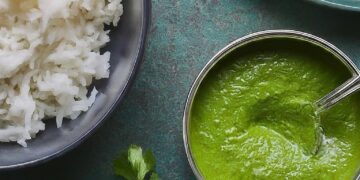Conquering Coughs: Natural Remedies for You and Your Little One
Coughing is a common thing that helps clear irritants from your throat. While it is often harmless, it can be disruptive and uncomfortable. Whether you’re coughing a dry cough or a wet, productive one, there are best remedy for cough to clean your throat and ease those coughs.
This article explores natural remedies for coughs, addresses dry coughs, nighttime coughs, and provides safe options for babies suffering from coughs and colds.
Understanding Different Coughs
Coughs come in various forms, each requiring a slightly different approach for relief. Here’s a breakdown of the two main types:
- Dry Cough: Often described as a hacking or tickly cough, it doesn’t produce mucus. This type of cough can be cause by irritants like dust, smoke, or allergies.
- Wet Cough (Productive Cough): This cough produces mucus that helps clear congestion from your airways. Wet coughs are common with colds, flu, and bronchitis.
Soothing Solutions: Best Remedy For Cough
Nature offers a treasure trove of remedies to combat coughs. Here are some effective options for adults and children (above 1 year old):
Hydration is Key: Drinking plenty of fluids like water, herbal teas, or warm broths helps thin mucus and soothe a scratchy throat. Aim for eight glasses of water daily or more if you’re coughing frequently.
Honey for Relief: Honey has antimicrobial properties and a soothing consistency that coats the throat, reducing irritation and cough frequency. For adults and children over 1 year old, a spoonful of honey is best remedy for cough. Never give honey to children under 1 year old due to the risk of infant botulism.
Steam Power: Inhaling warm, moist air loosens mucus and eases congestion. Take a hot shower, breathe in the steam, or use a humidifier to add moisture to the air, particularly at night when coughs can worsen.
Gargle Away Discomfort: Gargling with warm salt water (half teaspoon of salt in a cup of warm water) helps reduce inflammation and provides temporary relief from a sore throat that often accompanies a cough.
Ginger’s Goodness: Ginger’s anti-inflammatory properties can help relax irritated airways and ease coughing. Add chopped ginger to hot water for a soothing tea, or try ginger lozenges; this is the best remedy for coughs.
Slippery Elm to the Rescue: This herb coats and soothes the throat, reducing irritation and cough frequency. Slippery elm is available in lozenge or powder form (mixed with water or honey).
Let’s Talk Lozenges: Lozenges made with soothing ingredients like menthol or eucalyptus can provide temporary relief from coughs. Opt for sugar-free varieties to avoid irritating your throat further.
Rest and Recuperation: Getting enough sleep allows your body to heal and fight off the underlying cause of your cough.
Bonus Tip: Elevate your head while sleeping. This helps prevent mucus from dripping down your throat, which can trigger coughing.
Conquering Nighttime Coughs
Nighttime coughs can be particularly disruptive. Here are some additional tips for a restful night’s sleep:
- Avoid irritants before bed: Steer clear of smoke, dust, and allergens that can aggravate your cough.
- Use a humidifier at night: The added moisture soothes a dry throat and eases coughing.
- Elevate your head with extra pillows: This helps drainage and reduces nighttime coughing.
- Gargle with salt water before bed: This provides temporary relief and eases discomfort.
Soothing Remedies for Babies and Young Children (Over 1 Year Old)
While most home remedies listed above are suitable for adults and children over 1 year old, there are additional considerations for babies:
- Honey is not safe for children under 1 year old.
- Over-the-counter cough suppressants and decongestants are not recommended for young children. Consult your pediatrician before administering any medication.
- A humidifier is the best remedy for cough to be helpful for babies .
- Saline nasal drops can help loosen mucus and congestion.
- Gently suction mucus with a bulb syringe (aspirator). Talk to your pediatrician for proper technique to avoid irritation.
- Offer plenty of fluids: Breastmilk or formula is best for babies under 1 year. For older babies, water or diluted fruit juice can help with hydration.
Important Note: If your baby’s cough worsens, is accompanied by fever, or you have any concerns, consult your pediatrician immediately.
When to See a Doctor
While home remedies can be effective for most coughs, there are situations where seeking medical attention is crucial. Here are some red flags:
- Cough that lasts longer than 3 weeks
- Cough accompanied by fever, shortness of breath, or wheezing
- Coughing up blood
- Worsening cough after starting home remedies
Conclusion: A Cough-Free Future Awaits
Coughs are a common annoyance, but with the right approach, you can find relief and get back to feeling your best. This guide explored various home remedies, from hydration and honey to steam and soothing lozenges. Remember, understanding the type of cough you have (dry or wet) helps choose the most effective remedies.
For nighttime coughs, creating a calming sleep environment with a humidifier and head elevation can make a big difference. When it comes to babies and young children, prioritize hydration, saline drops, and consult your pediatrician before using any medication.
While home remedies are often effective, remember to seek medical attention for persistent coughs, high fevers, or other concerning symptoms. By listening to your body and employing these natural solutions, you can conquer coughs and breathe easily.
Read More Natural Remedies





































